Gather round: ‘Inequalities’ symposium at the Triennale Milano
Ahead of the 24th International exhibition at the Triennale Milano next year, 26 leading thinkers, curators and activists unpicked the theme ‘Inequalities’
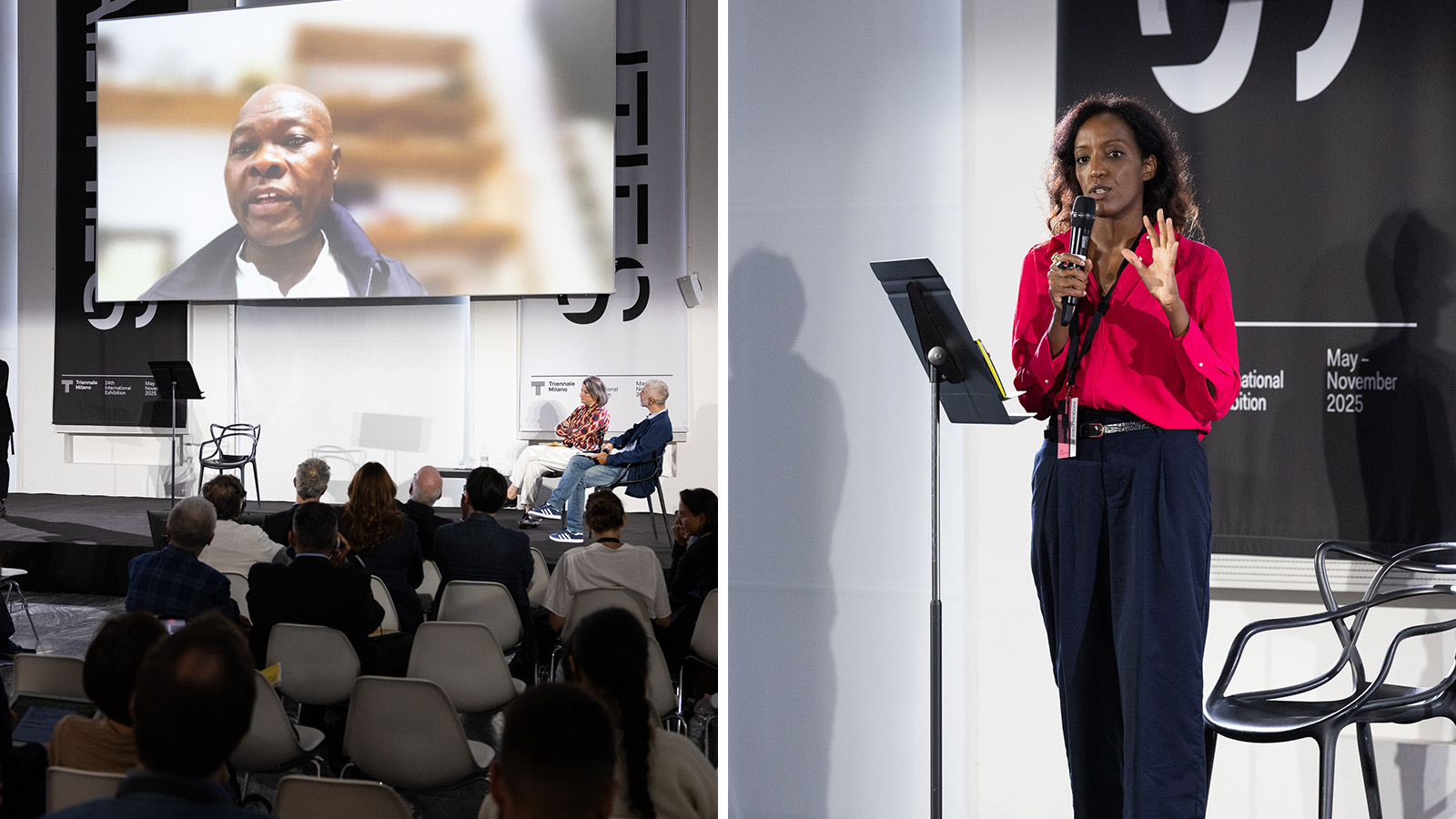
Biennials and triennials often claim to be interdisciplinary, to have art at their core but through it explore wider social, political, ecological or scientific issues. It is often skin deep, but at the Triennale Milano it’s always been rooted in the purpose of the institution, a design museum at its core, but taking the notion of design widely across all disciplines, beyond objects, machines and chairs – though Triennale Milano's vast archive holds incredible examples of all these.
Every three years the institution hosts an International Exhibition, taking over the whole building with a genuine interdisciplinary approach to tackle a timely subject. The upcoming theme for 2025 is Inequalities, which Triennale President, architect Stefano Boeri, states is a subject critical to every single crisis and challenge humanity faces right now.
‘Inequalities’ symposium at the Triennale Milano
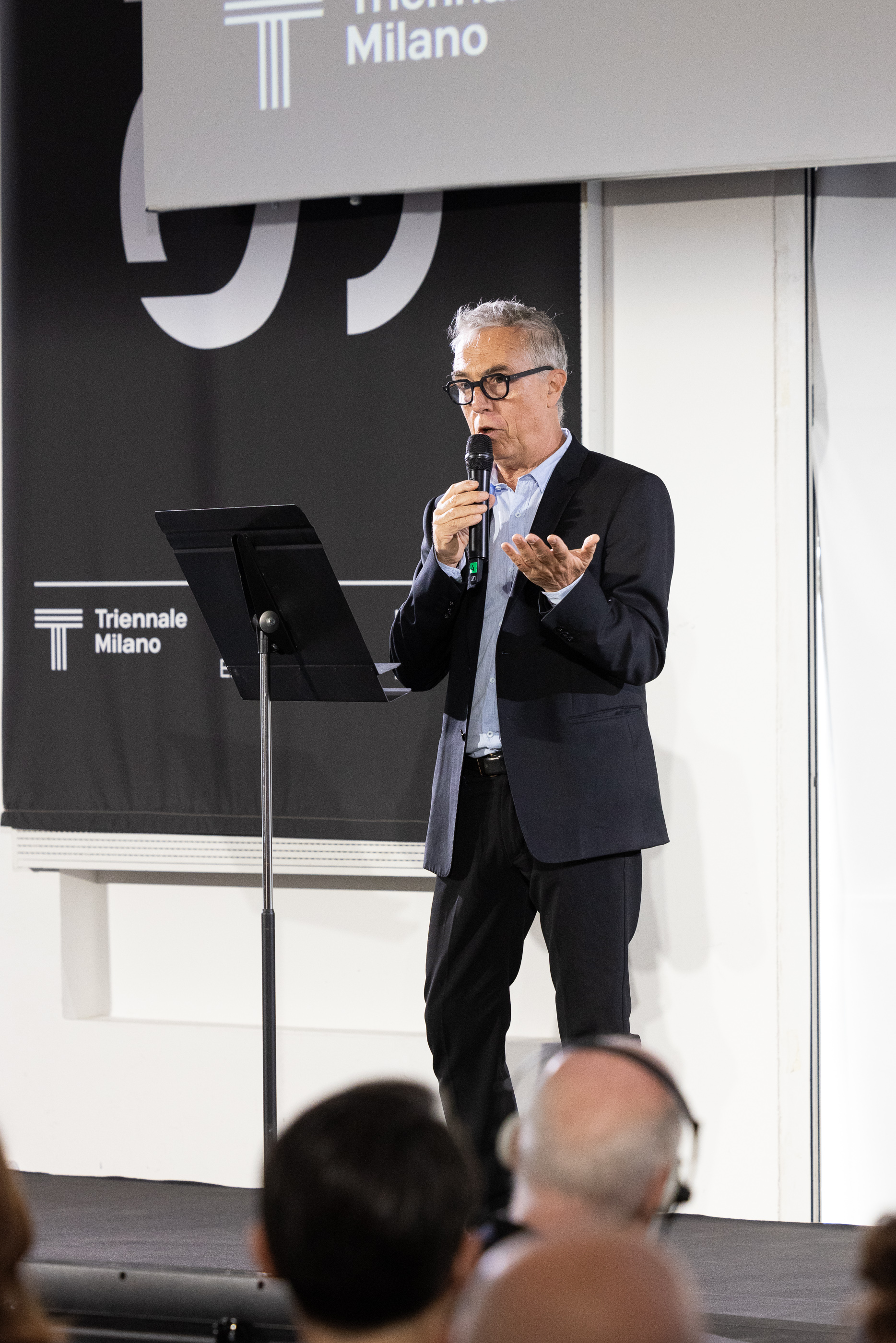
Triennale President, architect Stefano Boeri
Boeri was introducing a day-long forum to introduce some of the ideas that will weave throughout next year’s International Exhibition – and with thirty speakers across two thematic sessions, there is much for exhibition coordinator Laura Maeran to weave. Topics covered culture, religion, health, biodiversity, bacteria, space, housing, migration, AI and much more. Across these, the scales at which inequality will be tackled varies, Boeri said, “from a geopolitical standpoint to bio-politics, investigating behaviours at different scales, from microscopic bacteria to planetary.”
Sometimes, however, these scales intermix. 'The building is an expansion of your gut' said Mark Wigley and Beatriz Colomina in their co-presentation, Forms follow bacteria which drew connections from microbiology to urban planning and architecture. It wasn’t bacteria, however, but a virus that most exacerbated inequalities over recent years. Covid impacted the poorest most, while governmental responses favoured the wealthier countries of the global north with a post-colonial and economic disparity which entered numerous presentations.
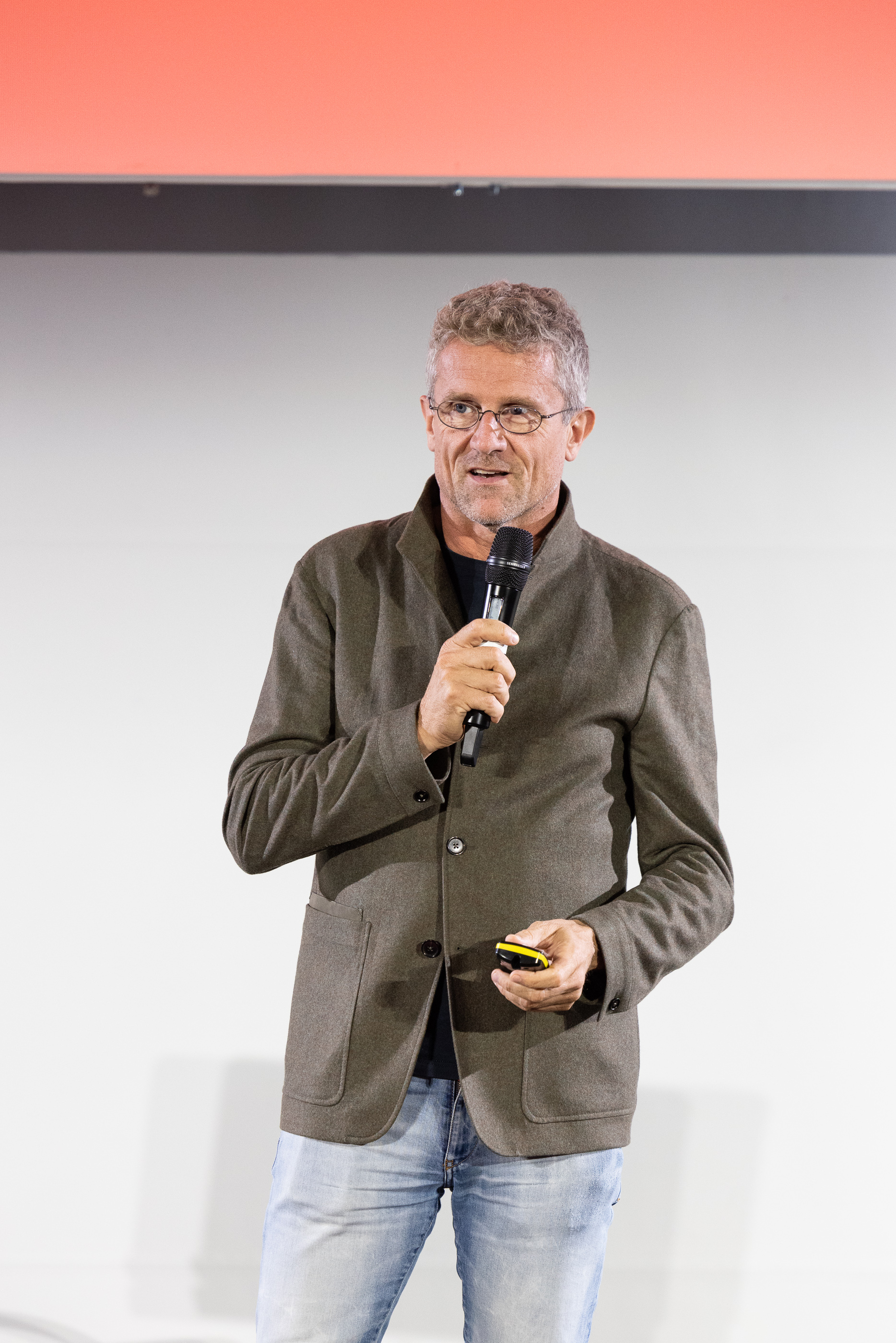
Carlo Ratti, scholar and curator of next year’s Venice Biennale of Architecture
For Carlo Ratti, scholar and curator of next year’s Venice Biennale of Architecture, the pandemic offered opportunity to investigate community connections with data mapping, towards helping “mend invisible fault lines.” Ratti’s research suggests that when access to shared physical space is limited or removed, as Covid forced, people lose casual acquaintances and loose connections, important elements of community and collective relationships which help diversity and remove segregation.
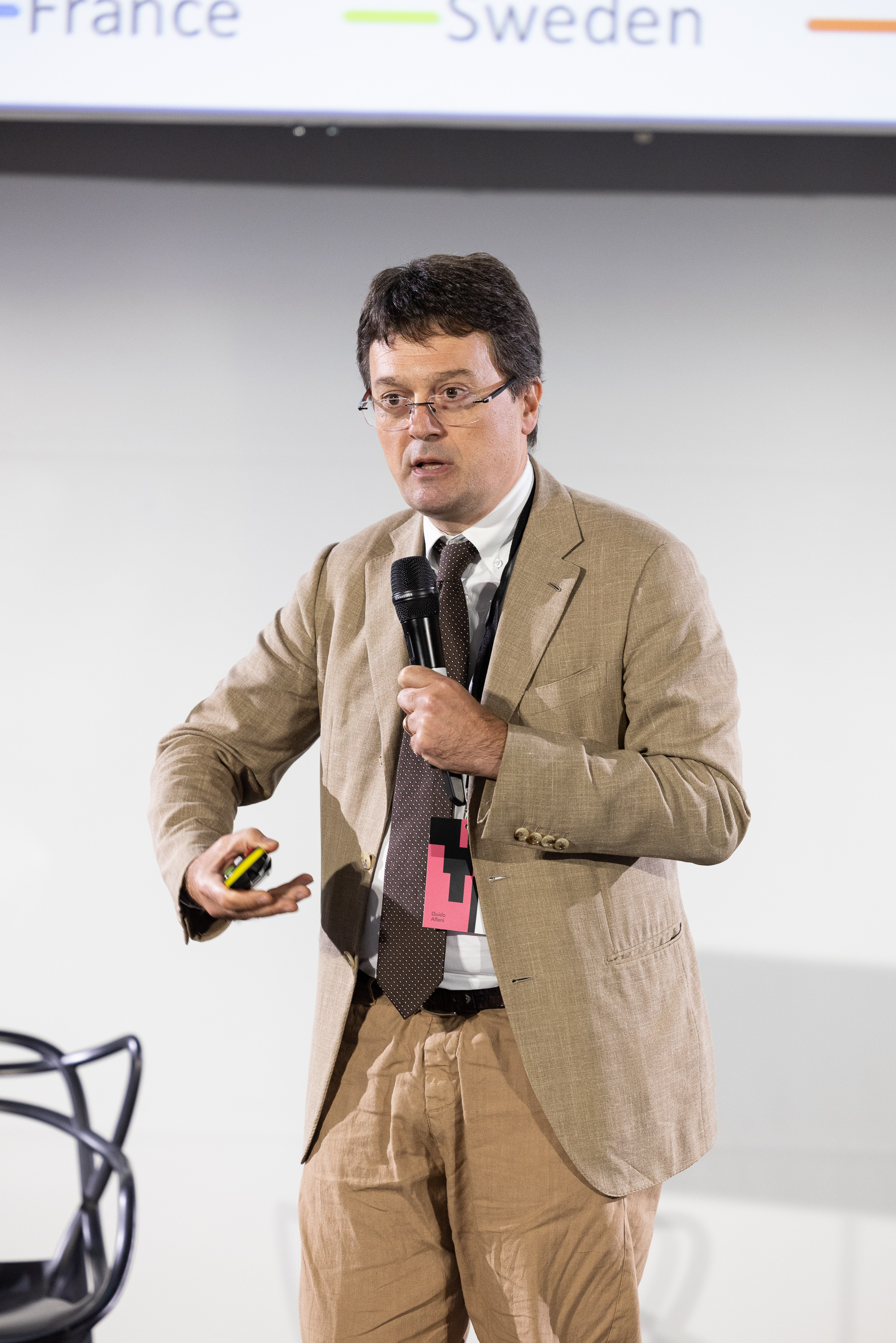
Guido Alfani of the Università Bocconi
This oblique perspective into inequality through broad subjects continued: Seble Woldeghiorghis discussed Black History Months in Italian cities, working with second generation communities; Sandro Balducci, a professor at DAStU Politecnico di Milano, discussed how the host city was embedded with inequality, calling for social needs to be prioritised in new developments; Guido Alfani of the Università Bocconi evidenced how the world’s richest 1% have not been impacted by governmental fiscal policies following the 2007 crash as had been the case after 1929 and World War II.
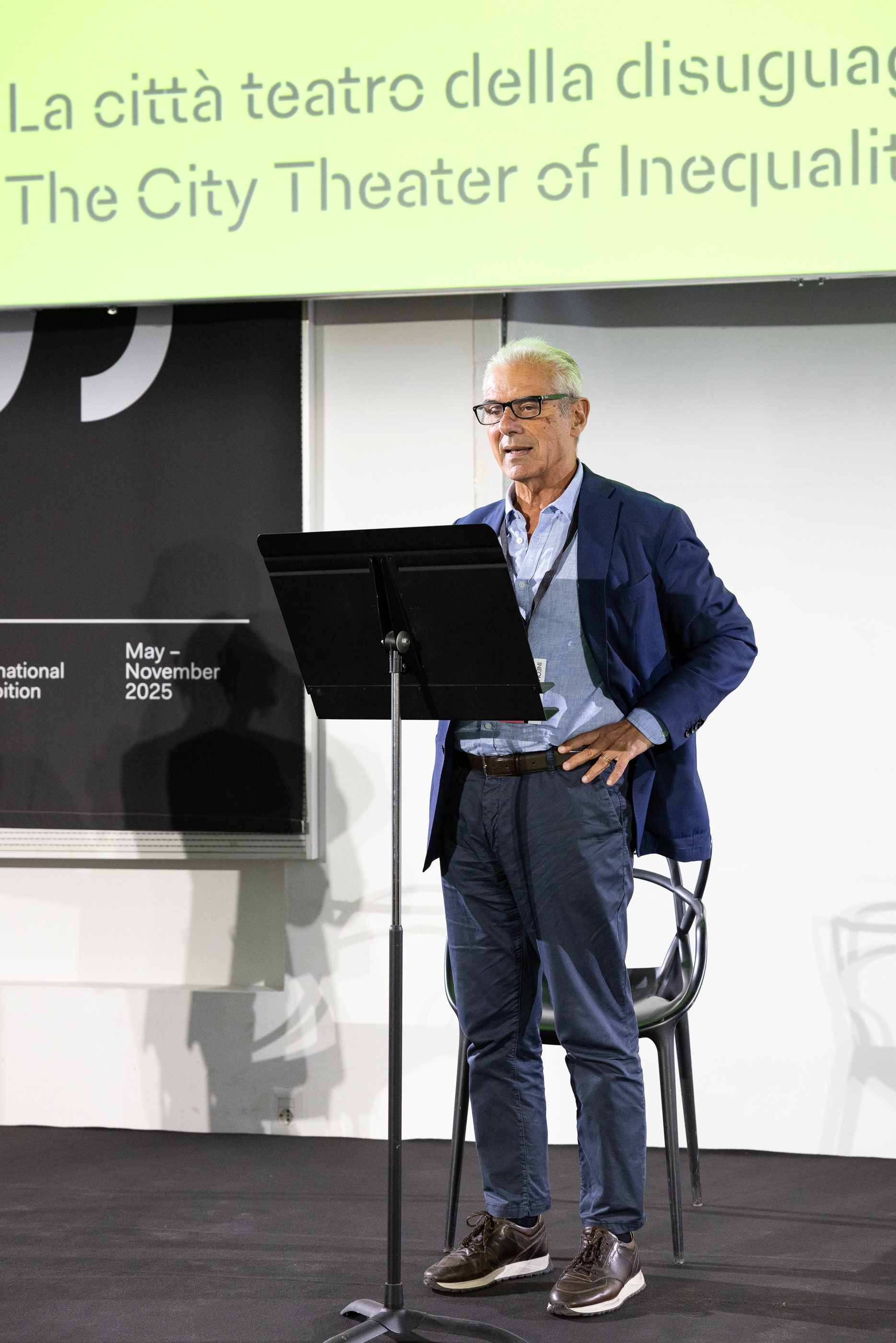
Sandro Balducci, a professor at DAStU Politecnico di Milano
Social anthropologist Tim Ingold kicked off the afternoon session with a plea for a “new humanism”. In an impassioned call to reconsider our place in ecological systems – “humans are not above everything else, but in the middle of everything else” – Ingold hoped for a democracy that might support the fundamental qualities of “togetherness and difference”, themes also picked up by Theaster Gates in presenting three of his artworks celebrating and focusing on unseen communities.
Wallpaper* Newsletter
Receive our daily digest of inspiration, escapism and design stories from around the world direct to your inbox.
Burkinabé architect Francis Kéré, a prominent contributor to the previous International Exhibition spoke of his project building a primary school in his home village of Gando, and how through it he creates access and opportunity. Another cultural participant, curator Hans Ulrich Obrist, asked “Can we again start to understand and listen through collective story telling?” as he presented the Serpentine Gallery’s Radio Ballads project shares stories and songs across communities.
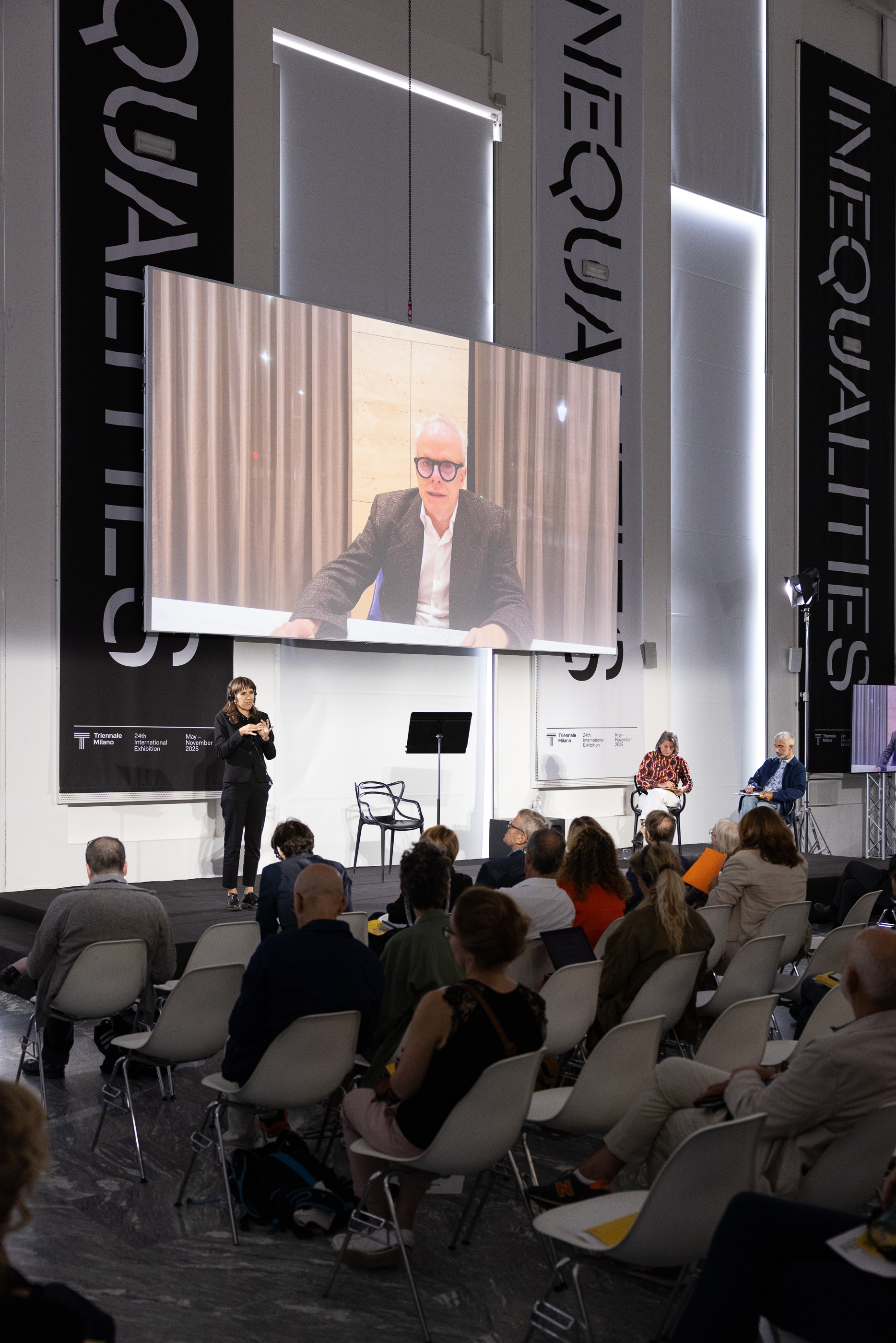
As with the previous International Exhibition, this forum feeds into the curation and framing of the 2025 exhibitions, even though the programme was comprised primarily not of cultural practitioners, but experts from a variety of fields. These experts were not always from academia or institutions, but often from self-made communities or histories that were not chosen. Nazanin Aghlani and Kimia Zabihyan both spoke meaningfully about the tragedy of Grenfell Tower. Aghlani is an architect and her mother died in the fire, while Zabihyan is a filmmaker who has become an advocate for the Grenfell Next of Kin organisation.
In Milan, shortly after the British Government published their seven-year inquiry spreading blame widely but ignoring issues of structural racism and ableism with regards to housing, Aghlani and Zabihyan were direct: “Everything that has happened has been a result of people demanding it, people from the most marginalised places.” They were also charged to keep fighting outside of their immediate community, with the group having travelled to Valencia and Milan to support communities affected by similar cladding-related fires.
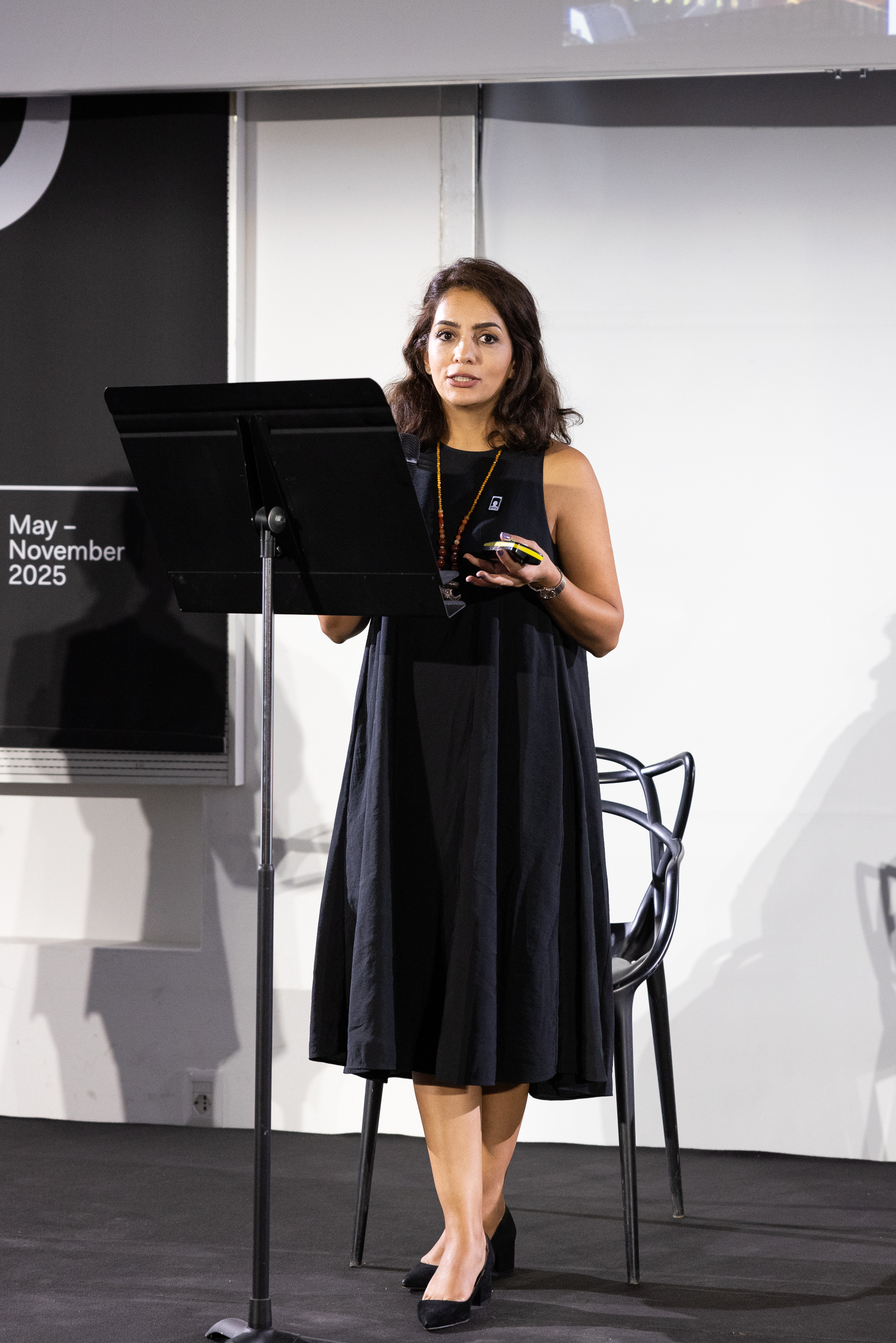
Architect Nazanin Aghlani
If the Triennale Milano can keep the political charge and dedication to connecting beyond the local, as evidenced especially by Aghlani and Zabihyan but also by all speakers across all disciplines, then the exhibition will not only be rich in content, but also in power. It is no easy task to use the format of an exhibition to meaningfully explore social, political, ecological and scientific issues, but if any institution can carry off such a feat it is here, where Interdisciplinarity is rooted in its history and purpose – and I am looking forward to seeing how Boeri, Maeran and their team will pull all these issues together into a coherent, and important, analysis.
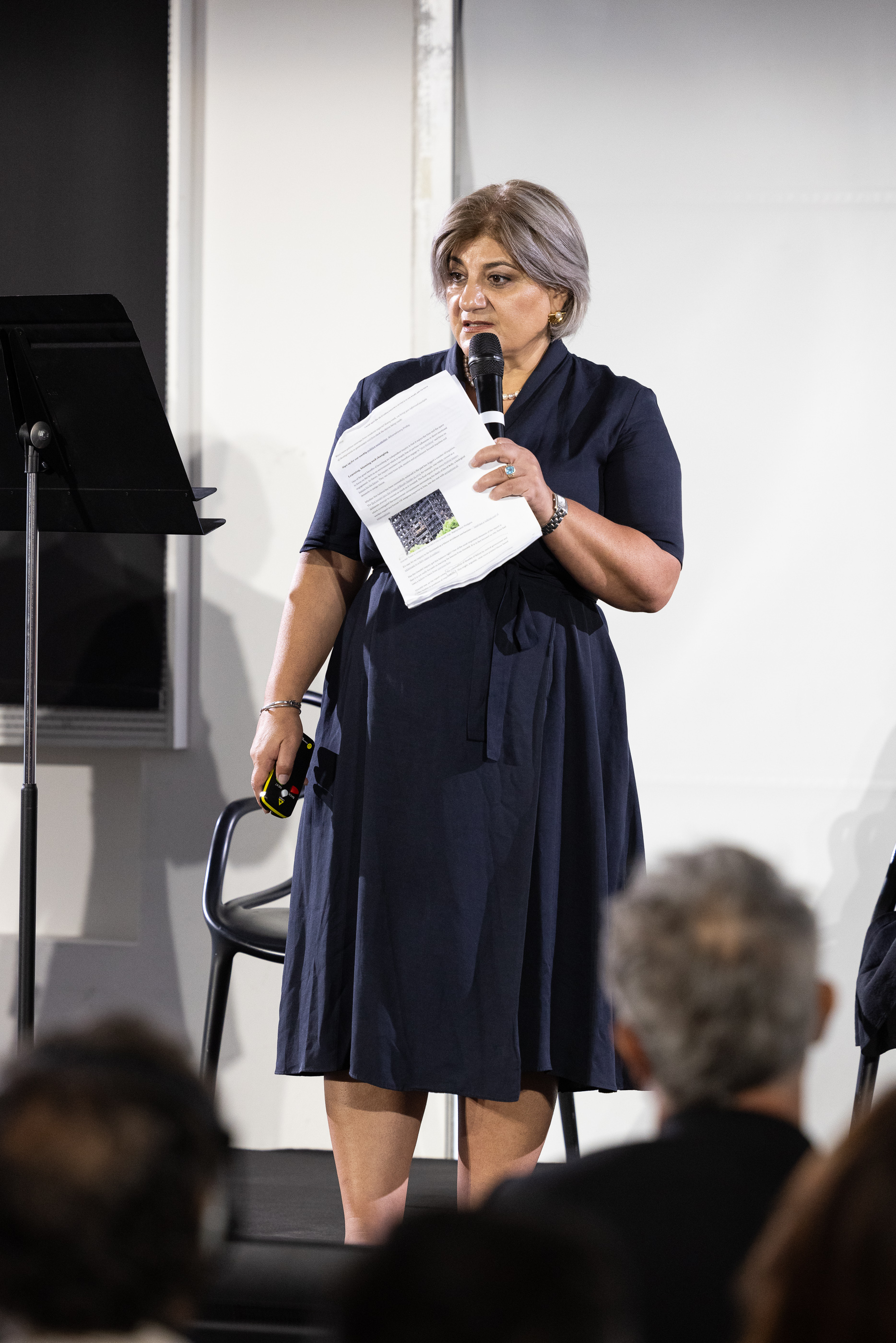
Filmmaker Kimia Zabihyan
Will Jennings is a writer, educator and artist based in London and is a regular contributor to Wallpaper*. Will is interested in how arts and architectures intersect and is editor of online arts and architecture writing platform recessed.space and director of the charity Hypha Studios, as well as a member of the Association of International Art Critics.
-
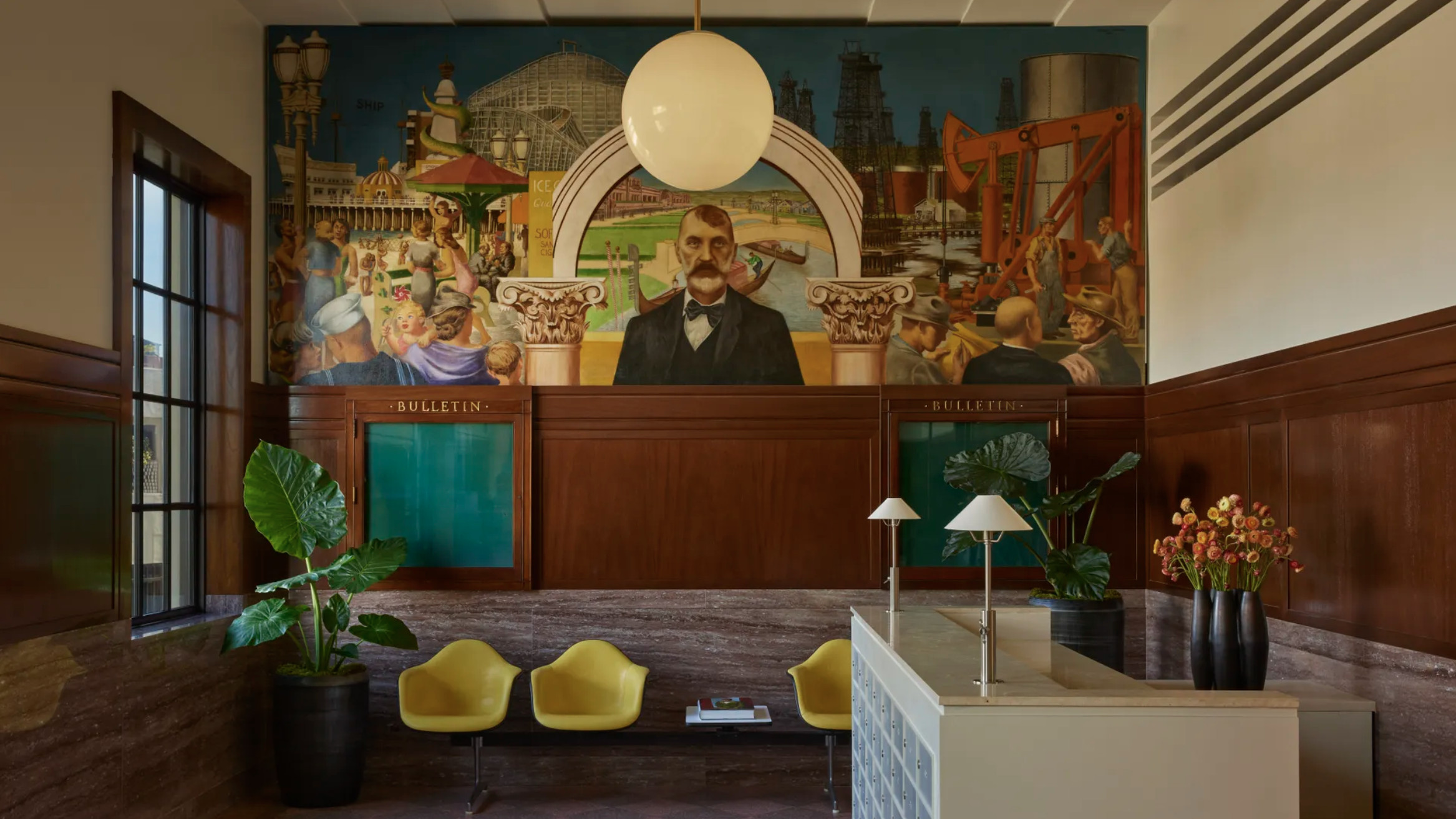 The Lighthouse draws on Bauhaus principles to create a new-era workspace campus
The Lighthouse draws on Bauhaus principles to create a new-era workspace campusThe Lighthouse, a Los Angeles office space by Warkentin Associates, brings together Bauhaus, brutalism and contemporary workspace design trends
By Ellie Stathaki
-
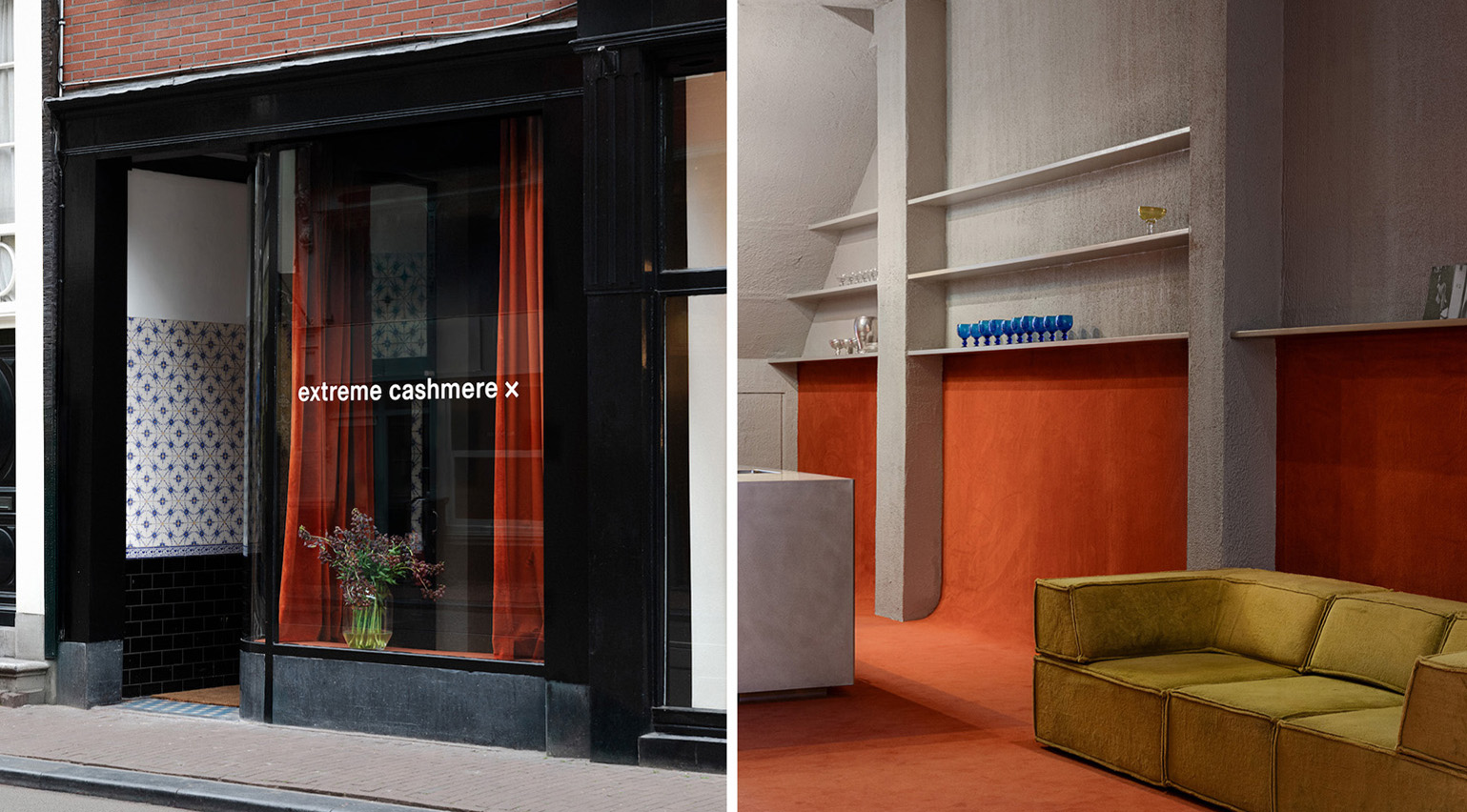 Extreme Cashmere reimagines retail with its new Amsterdam store: ‘You want to take your shoes off and stay’
Extreme Cashmere reimagines retail with its new Amsterdam store: ‘You want to take your shoes off and stay’Wallpaper* takes a tour of Extreme Cashmere’s new Amsterdam store, a space which reflects the label’s famed hospitality and unconventional approach to knitwear
By Jack Moss
-
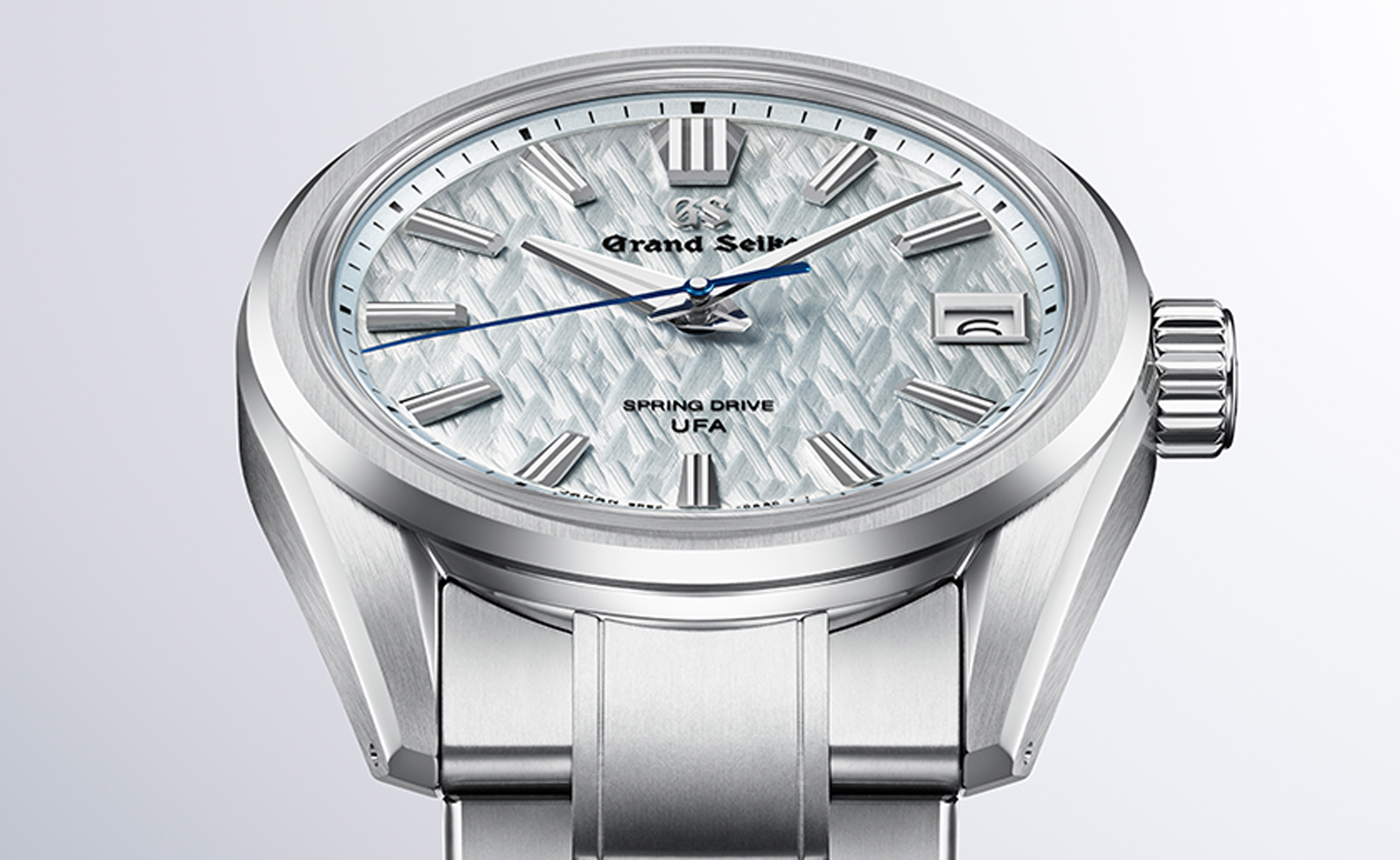 Titanium watches are strong, light and enduring: here are some of the best
Titanium watches are strong, light and enduring: here are some of the bestBrands including Bremont, Christopher Ward and Grand Seiko are exploring the possibilities of titanium watches
By Chris Hall
-
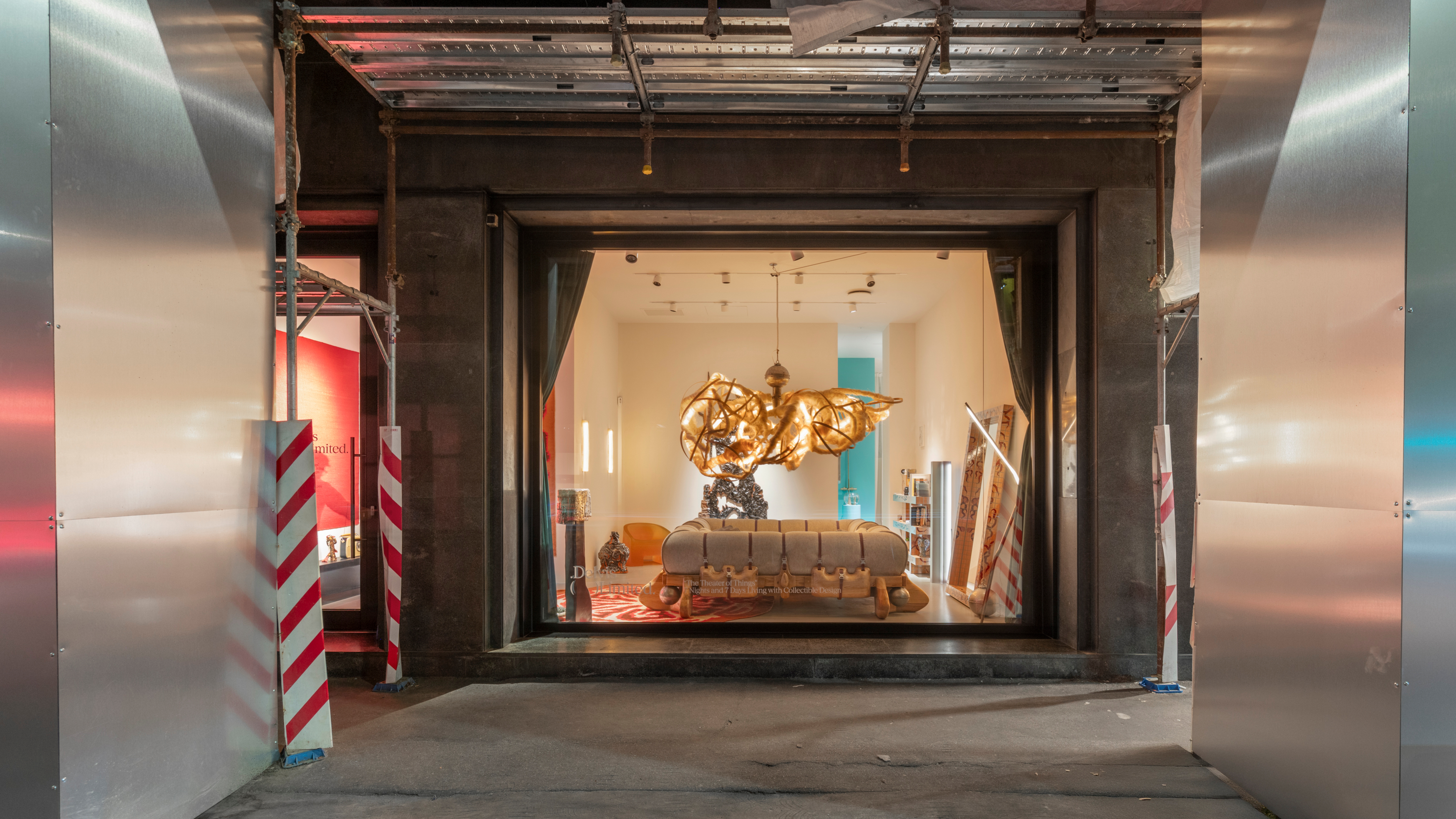 Delvis (Un)Limited turns a Brera shopfront into a live-in design installation
Delvis (Un)Limited turns a Brera shopfront into a live-in design installationWhat happens when collectible design becomes part of a live performance? The Theatre of Things, curated by Joseph Grima and Valentina Ciuffi, invited designers to live with their work – and let the public look in
By Ali Morris
-
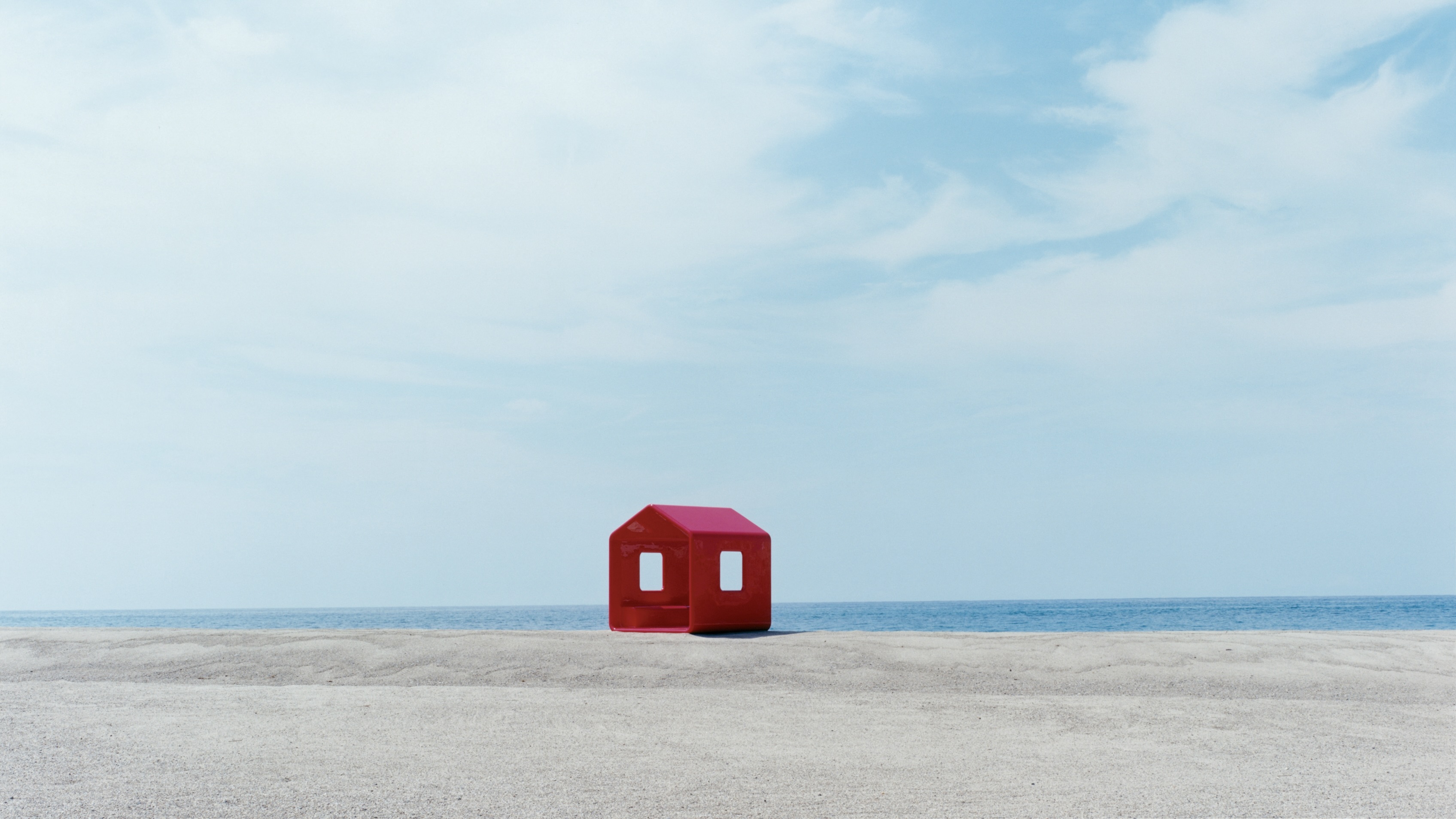 Naoto Fukasawa sparks children’s imaginations with play sculptures
Naoto Fukasawa sparks children’s imaginations with play sculpturesThe Japanese designer creates an intuitive series of bold play sculptures, designed to spark children’s desire to play without thinking
By Danielle Demetriou
-
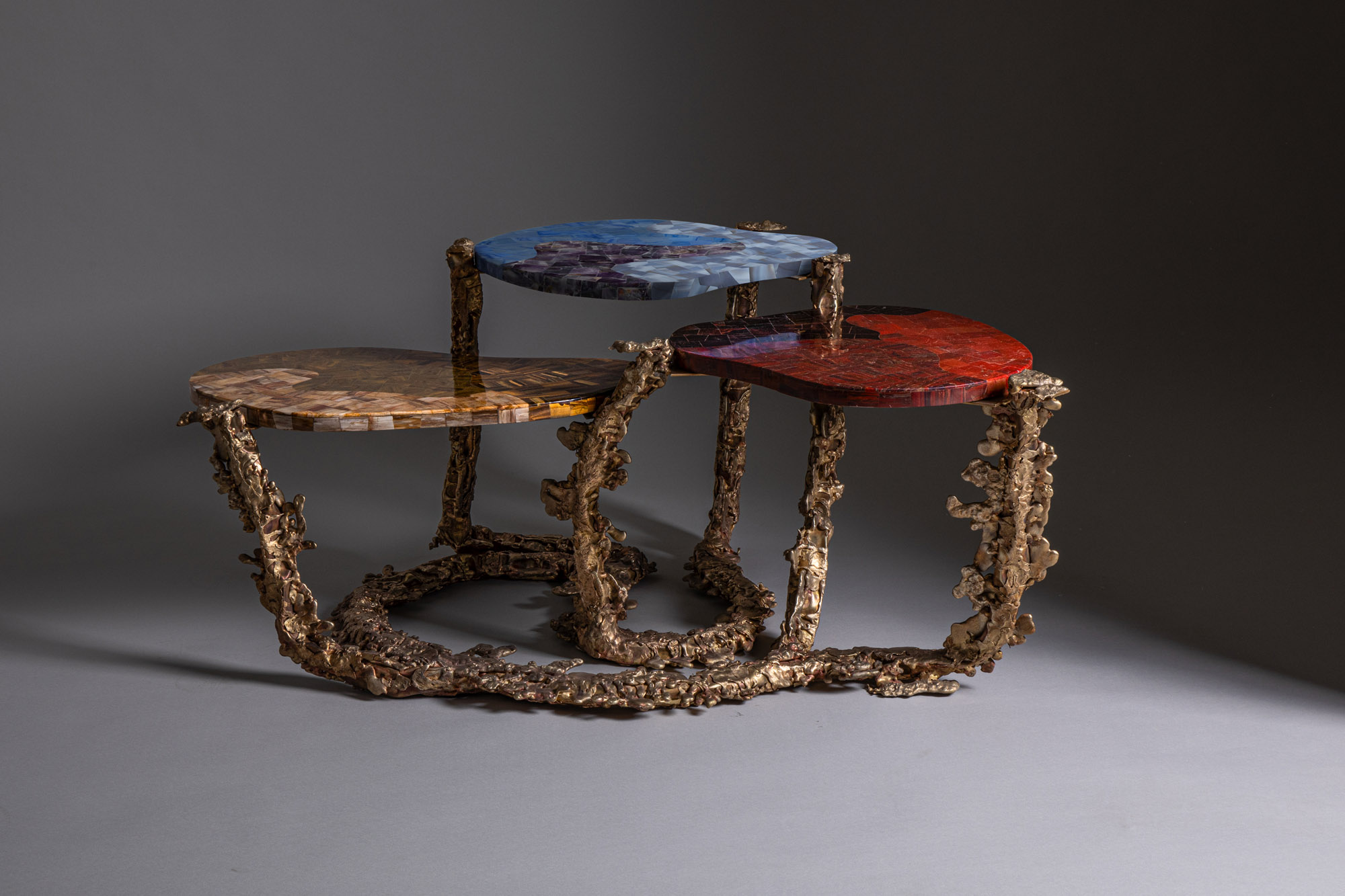 Inside the Shakti Design Residency, taking Indian craftsmanship to Alcova 2025
Inside the Shakti Design Residency, taking Indian craftsmanship to Alcova 2025The new initiative pairs emerging talents with some of India’s most prestigious ateliers, resulting in intricately crafted designs, as seen at Alcova 2025 in Milan
By Henrietta Thompson
-
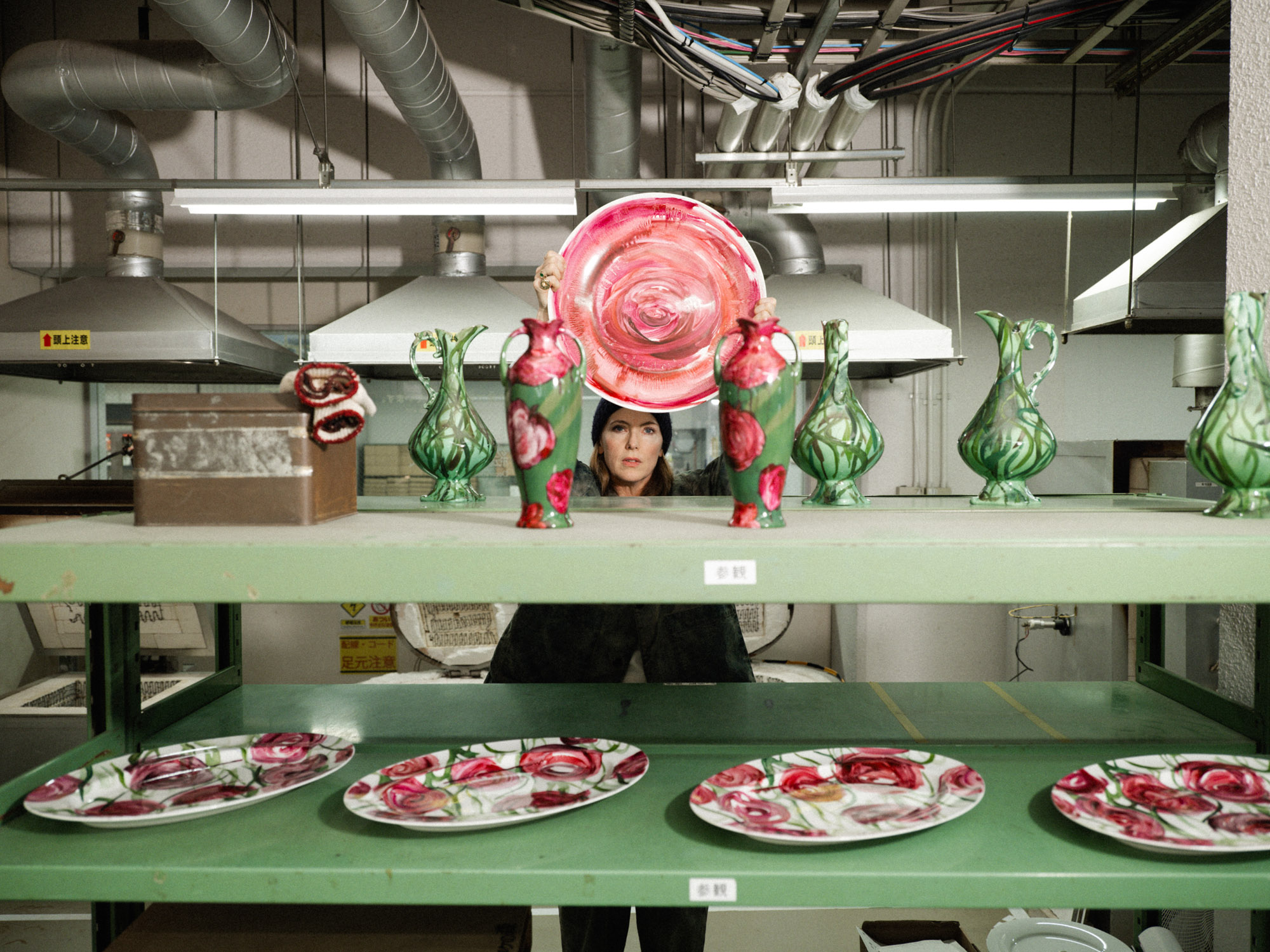 Faye Toogood comes up roses at Milan Design Week 2025
Faye Toogood comes up roses at Milan Design Week 2025Japanese ceramics specialist Noritake’s design collection blossoms with a bold floral series by Faye Toogood
By Danielle Demetriou
-
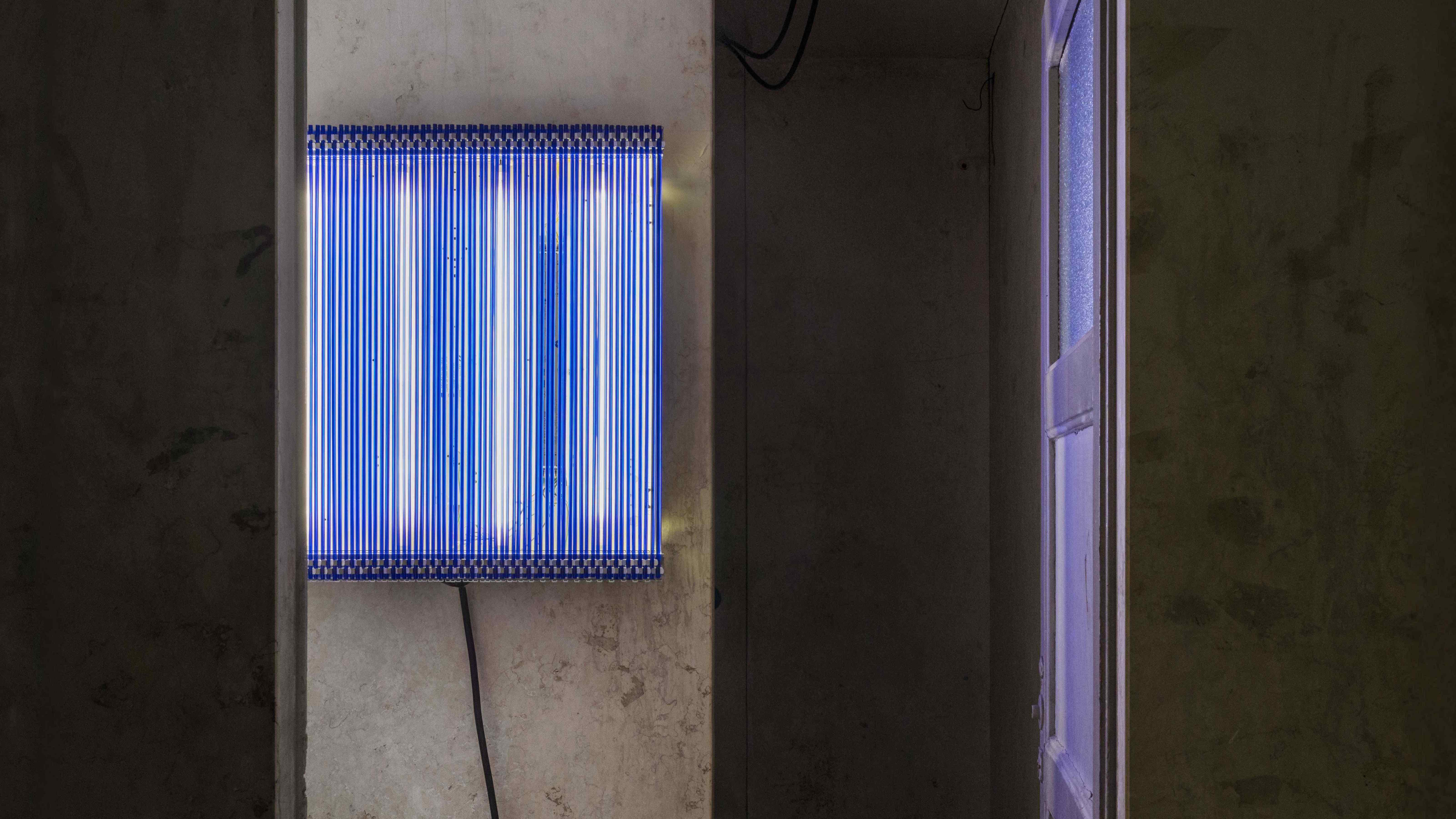 6:AM create a spellbinding Murano glass showcase in Milan’s abandoned public shower stalls
6:AM create a spellbinding Murano glass showcase in Milan’s abandoned public shower stallsWith its first solo exhibition, ‘Two-Fold Silence’, 6:AM unveils an enchanting Murano glass installation beneath Piscina Cozzi
By Ali Morris
-
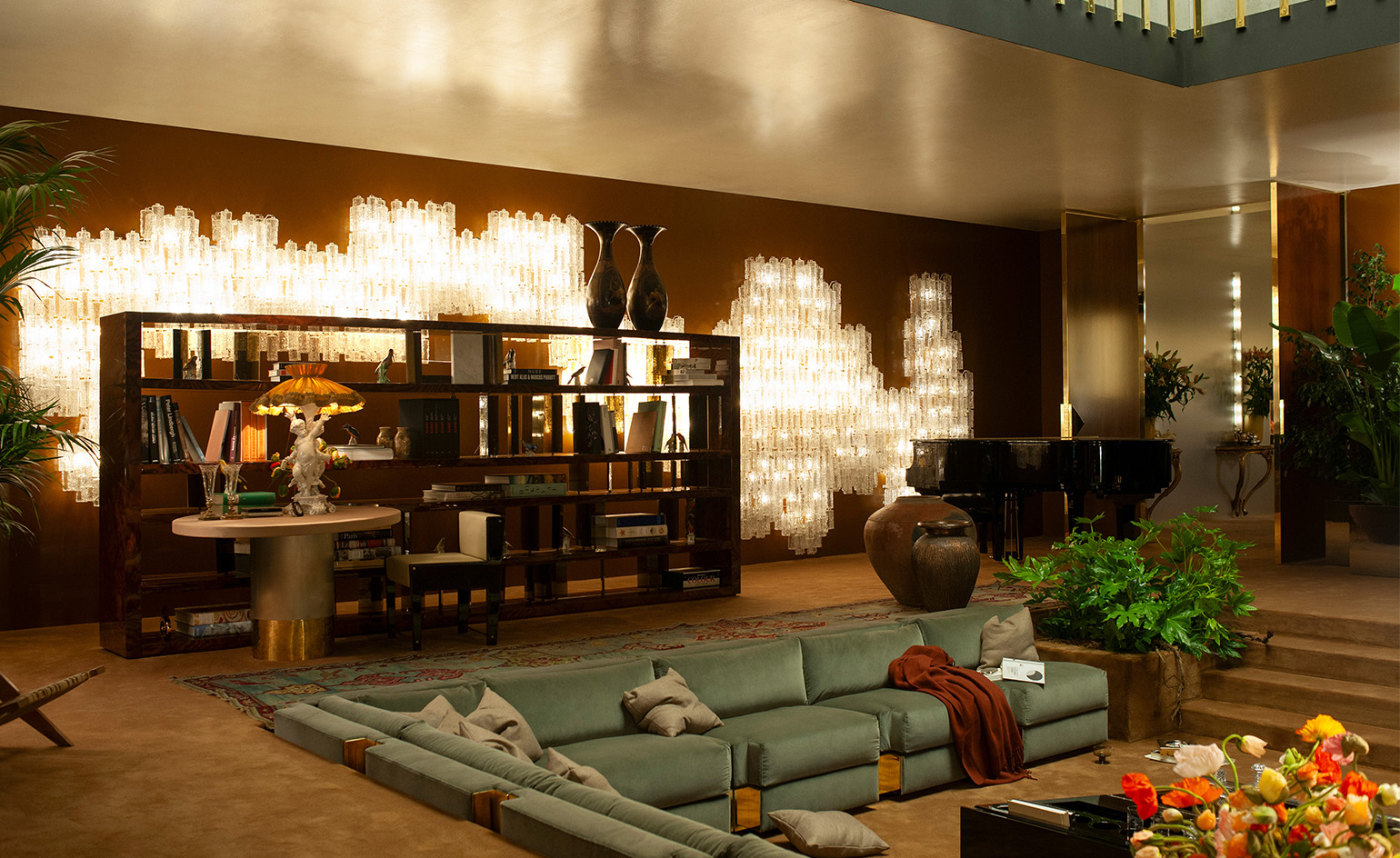 Dimoremilano and Loro Piana channel 1970s cinema in decadent Milan display
Dimoremilano and Loro Piana channel 1970s cinema in decadent Milan displayAt Milan Design Week 2025, Dimorestudio has directed and staged an immersive, film-inspired installation to present new furniture and decor for Loro Piana
By Dan Howarth
-
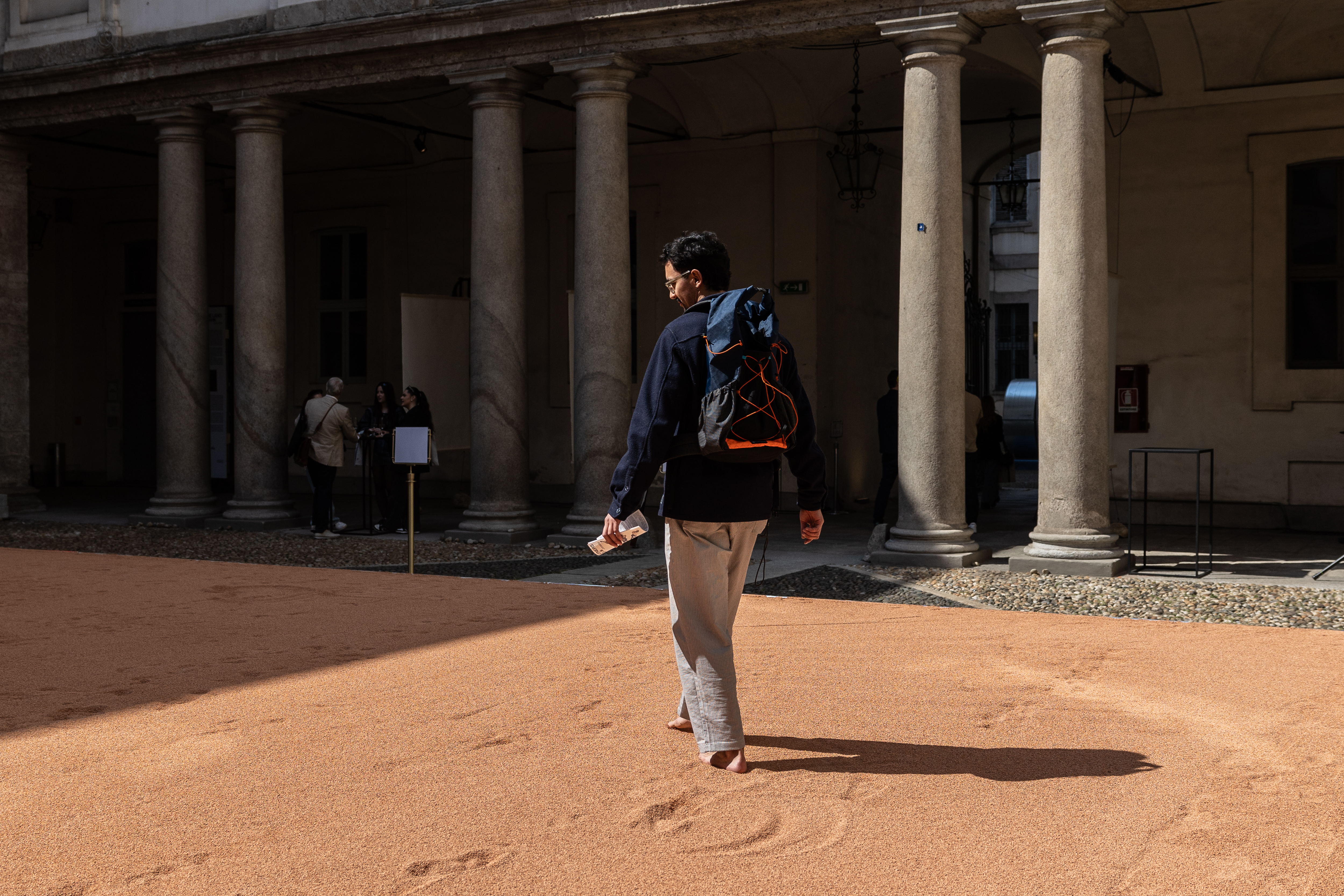 In Milan, MoscaPartners presents a poetic exploration of ‘migration’
In Milan, MoscaPartners presents a poetic exploration of ‘migration’Alongside immersive work by Byoung Cho, MoscaPartners’ Milan Design Week 2025 display features an accessible exhibition path designed for visually impaired visitors
By Cristina Kiran Piotti
-
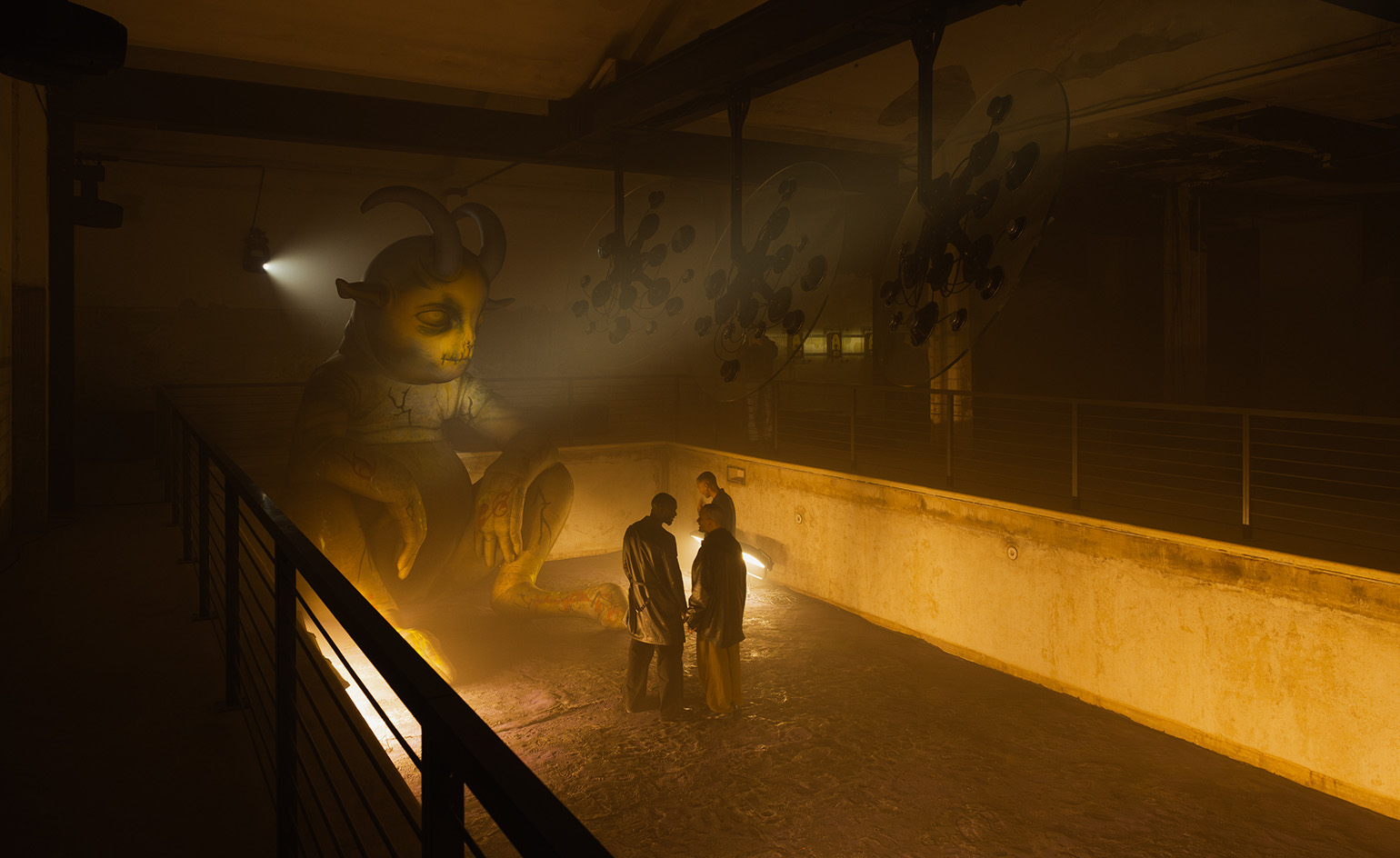 The making of PAN and Nike’s euphoric, club-inspired collaboration at Milan Design Week
The making of PAN and Nike’s euphoric, club-inspired collaboration at Milan Design WeekAlongside a new Air Max 180 release, ‘The Suspended Hour’ display sees Berlin record label PAN imagine the unfolding of a club night, from dusk until dawn
By Craig McLean